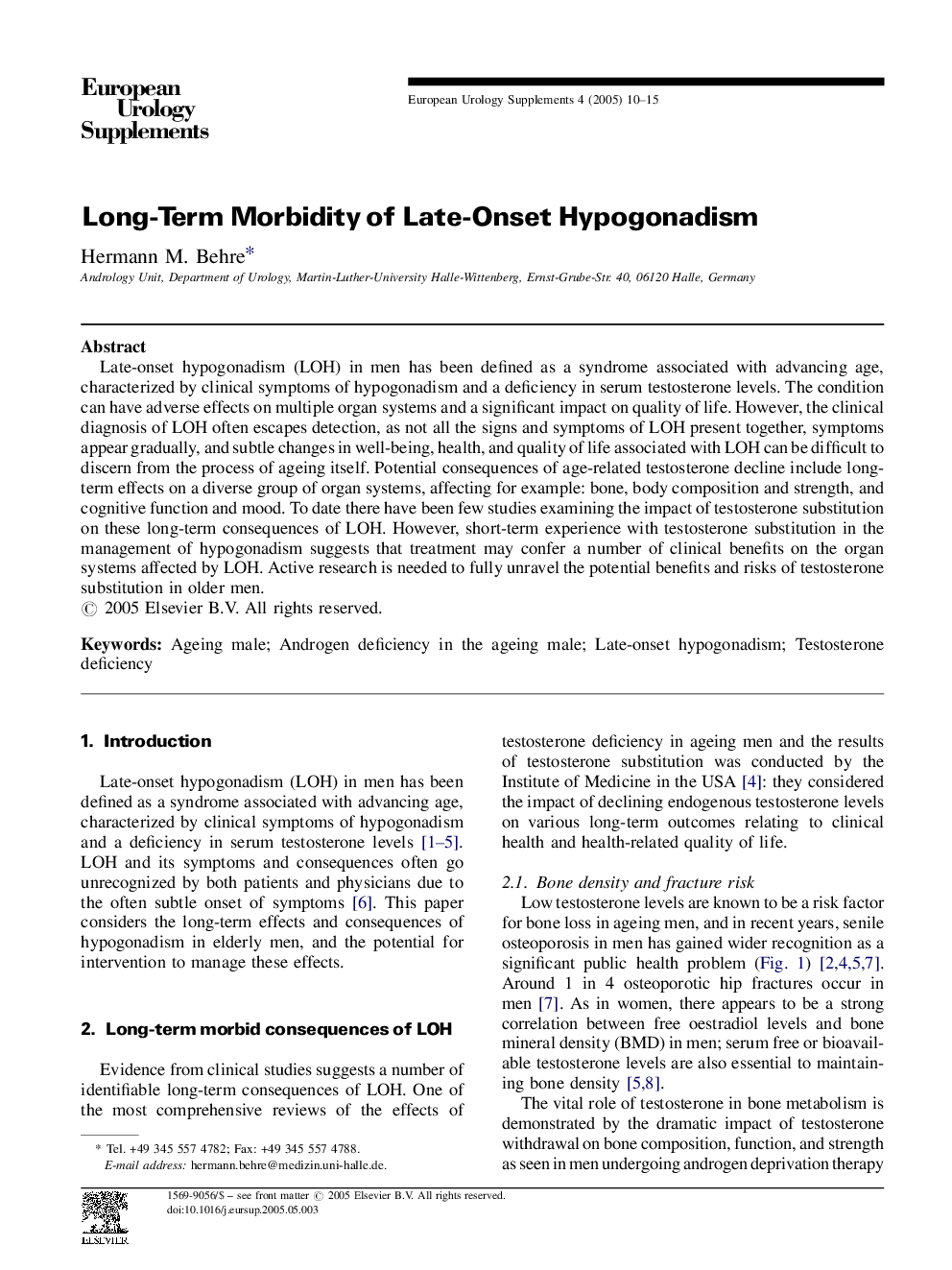| Article ID | Journal | Published Year | Pages | File Type |
|---|---|---|---|---|
| 9321328 | European Urology Supplements | 2005 | 6 Pages |
Abstract
Late-onset hypogonadism (LOH) in men has been defined as a syndrome associated with advancing age, characterized by clinical symptoms of hypogonadism and a deficiency in serum testosterone levels. The condition can have adverse effects on multiple organ systems and a significant impact on quality of life. However, the clinical diagnosis of LOH often escapes detection, as not all the signs and symptoms of LOH present together, symptoms appear gradually, and subtle changes in well-being, health, and quality of life associated with LOH can be difficult to discern from the process of ageing itself. Potential consequences of age-related testosterone decline include long-term effects on a diverse group of organ systems, affecting for example: bone, body composition and strength, and cognitive function and mood. To date there have been few studies examining the impact of testosterone substitution on these long-term consequences of LOH. However, short-term experience with testosterone substitution in the management of hypogonadism suggests that treatment may confer a number of clinical benefits on the organ systems affected by LOH. Active research is needed to fully unravel the potential benefits and risks of testosterone substitution in older men.
Related Topics
Health Sciences
Medicine and Dentistry
Obstetrics, Gynecology and Women's Health
Authors
Hermann M. Behre,
